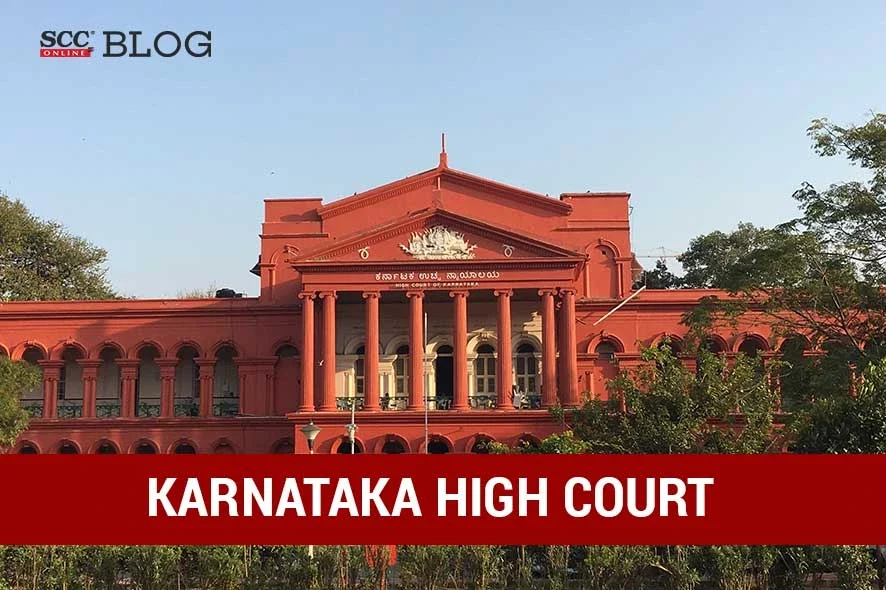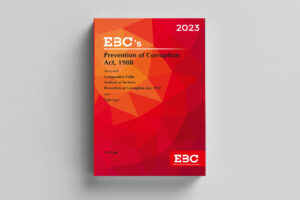Karnataka High Court: While considering the instant petition wherein an approval accorded by the State Government for conducting an investigation against the petitioner under Section 17-A of the Prevention of Corruption Act, 1988, was challenged before the Court; the Bench of N.S Sanjay Gowda, J*., dismissed the petition stating that the parameters that are to be applied for according approval to investigate a public servant are not as stringent as the parameters which provide for granting sanction to prosecute a public servant. It was further stated that the integrity of a public servant is required to be beyond suspicion as in the proverbial adage that “Caesar’s wife must be above suspicion”. Thus, if the aspersions cast on the integrity of a public servant and the Investigating Officer harbours a view that an investigation is necessary, it would be in the interests of both the Government and the public servant that such a nagging suspicion is obliterated. In order to achieve this objective, the Government should be given the greatest degree of latitude to accord approval for conducting investigation.
Background: A proposal was submitted by the Deputy Inspector General of Police, Anti-Corruption Bureau, to the Government seeking approval to investigate the then Commissioner of the BDA and the petitioner, who was working as Deputy Secretary-III in the Bangalore Development Authority in matters related to allotments in a layout.
The State Government, on consideration of the said proposal/request, came to the conclusion that a prima facie case had been made out, and therefore, accorded approval for conducting an investigation as provided under Section 17-A of the Act.
Aggrieved with the afore-stated order, the petitioner knocked the doors of the Court.
Counsels for the petitioner contended that the Government order granting the impugned approval was without application of mind.
Court’s Assessment: In order to properly deliberate over the matter and ascertain the legal position, the Court considered it essential to have an overview of the provisions of the Prevention of Corruption Act, 1988.
Perusing Section 17-A of the 1988 Act, the Court pointed out that if any offence under the Act is alleged against a public servant which is relatable to a recommendation or decision taken by him, Section 17A of the Act prohibits a police officer from conducting any enquiry or investigation without obtaining the approval of the Union Government or the State Government or the person competent to remove the public servant, as the case may be. It was noted that since the petitioner is State Government employee, hence approval was sought from the State Government.
The Court stated that Section 17-A of PC Act, 1988 is a protective shield provided to a public servant from being subjected to an enquiry or investigation by a police officer. It was further stated that at the stage of seeking approval for conducting investigation, the Investigating Officer would himself not be aware as to whether there has been a commission of an offence under the Act or the circumstances surrounding the alleged offence. “The Investigating Officer, at that point in time, would only have the knowledge of an allegation that an offence has been committed. In the normal course, to ascertain whether an offence had been actually committed, the Investigating Officer would naturally have to conduct an investigation (…) where the Investigating Officer only has an allegation to act upon and is yet to ascertain the details of commission of the alleged offence and collect evidence, the law creates a prohibition on him from investigating into an offence unless the employer i.e., the State Government accords approval”.
The Court stated that Section 17A thus, grants an extraordinary layer of protection to a public servant to even be subjected to an investigation by a police officer, which is unavailable to an ordinary citizen and is against the basic principle that a police officer is required to act with a sense of promptitude and ascertain whether an offence has been committed, and also collect incriminating material which would establish the crime without loss of time.
The Court further pointed out that Section 17A reflects the intention of the legislature in ensuring that the State (Employer) protects its employees (public servants) from any unwanted or unnecessary investigation. “It must also be borne in mind that it is quite possible that in a system such as ours, a police officer can proceed to investigate any public servant, so as to intimidate or harass a public servant for extraneous factors and such instances are not uncommon in our country. It is for this reason that though there was no such provision available in the Act when it was originally enacted in 1988, probably by the experience it had in matters in relation to the Act, the Legislature thought it fit to insert Section 17A by way of an amendment in the year 2018”.
The Court pointed out that that the requirement of obtaining prior approval under Section 17A of the Act is, however, made unnecessary in cases where the public servant is arrested on the spot, under the charge of accepting or attempting to accept any undue advantage.
It is therefore, not necessary that there should be clear incriminating evidence with the Investigating Officer at the stage of him seeking prior approval under Section 17A. All that is required under the provisions of Section 17A is that the Investigating Officer has some credible evidence, on the basis of which, he forms an opinion that an investigation is warranted.
Thus, the State Government would be required to only consider the opinion that is formed by the Investigating Officer and the material that he possesses while considering the request for approval. It is clear from the wording of Section 17A of the Act that the State Government is not required to exhaustively and meticulously consider all the material available with the Investigating Officer at the time he seeks approval, and it is only required to examine and consider whether the opinion formed by the Investigating Officer that an investigation warranted is justified or not.
The Court stated that if an employer (State Government in this case) is of the opinion that their employee deserves to be investigated for the commission of an offence, the employee cannot contend that the approval can be granted only if there was clear and incriminating material to establish the guilt of the accused.
Elaborating upon the stark difference between granting of a “sanction to prosecute” and “according an approval to investigate” to an Investigating Officer, the Court pointed out that at the stage of seeking sanction to prosecute, the Investigating Officer would have completed the investigation and would also have collected material, which, in his opinion, would prove that the public servant is guilty of the offence(s) alleged against him. “At that stage of seeking sanction to prosecute, the Investigating Officer is well armed and certain that there is material which would establish the guilt of the public servants”. At the stage of granting sanction to prosecute, the respective Government is required to examine all the materials collected during the course of investigation and then come to a conclusion as to whether the materials collected indicate if a case for prosecuting the public servant is made out.
In respect of according an approval to investigate, the Investigating Officer would not normally have any incriminating material and would only possess credible information about the commission of an offence, and it is this credible information that is required to be considered and analysed by the Government.
The Court pointed out that in the instant case the request of the Investigating Officer was elaborate also stated that the manner in which the entire exercise had been undertaken indicated that the same had been done to make unlawful gains by the public servants involved in the process. Thus, a clear opinion had been formed by the Officer that he suspected the commission of an offence by the petitioner. The State Government has on consideration of the materials placed before it, prima facie found that there was adequate material which indicated that an attempt had been made by the petitioner and the then Commissioner to cause loss to the Government, and therefore, in order to ascertain the truth in the matter, it was necessary to accord approval to conduct investigation.
The Court was of the view that State Government applied its mind to the request made by the Investigating Officer and has considered the matter rationally before according its approval to investigate the petitioner and another.
[Shreeroopa v. State of Karnataka, 2023 SCC OnLine Kar 68, decided on 04-10-2023]
*Judgment by Justice N.S. Sanjay Gowda
Advocates who appeared in this case :
For petitioner- D.R. Ravishankar, Senior Counsel for Siri Rajashekar, Advocate
For respondent- Prathibha R.K., AGA for R-1 & R-2







